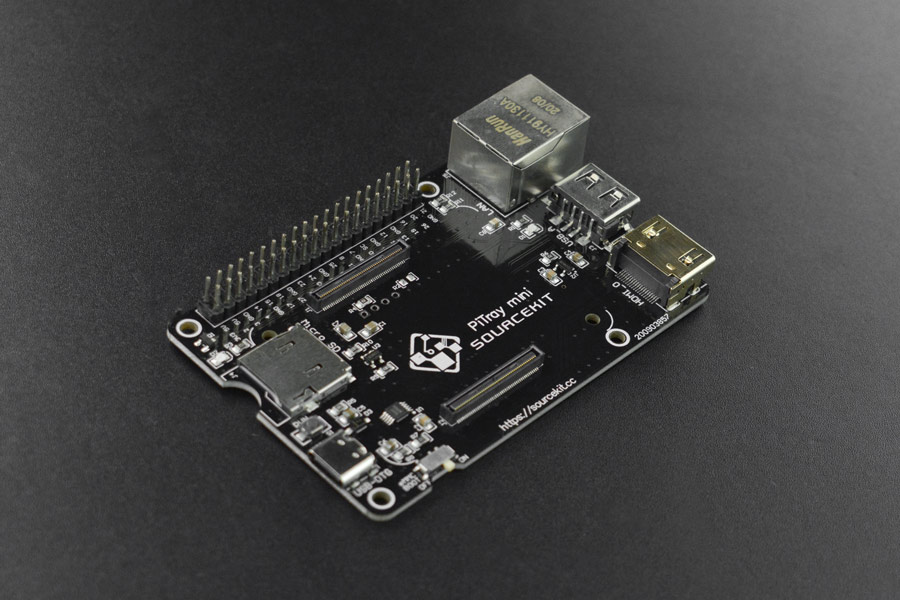The Raspberry Pi Compute Module 4 introduced a change in form factor for the industrial/embedded range of Raspberry Pi. Previous models favored the SODIMM form factor, but for the Compute Module 4, we saw a change to a dual, custom interface. The Compute Module 4 form factor requires a development board, often referred to as a “carrier board” in order to be used. Many makers are building their own custom carrier boards, and the Sourcekit PiTray mini looks to be the latest offering the power of the Compute Module 4 in a form factor similar to the Raspberry Pi 4.
Image 1 of 2
Image 2 of 2
The Sourcekit PiTray mini shares the same dimensions as the Raspberry Pi 4 at 3.3 x 2.2 inches (85 x 56mm), and while it may look familiar, this is a different board. On the top edge of the board is a 40 pin GPIO compatible with HATs and accessories in the Raspberry Pi range, including the M2.5 screw holes useful for securing boards atop the Pi. A single Gigabit Ethernet port, 1 x USB 2.0, and a full-size HDMI 2.0 port round off the right side of the board. For Compute Module 4 boards with onboard eMMC storage, a switch on the board’s bottom edge is used to select eMMC as a boot medium.
The left side has a USB C port to power and flash the Compute Module 4. A run button resets the Compute Module 4, and a MicroSD slot provides storage and boot media for all models of the Compute Module 4.
But something is missing: The SourceKit PiTray mini appears to be missing a PCIe breakout that’s present of the official Raspberry Pi Compute Module 4 IO board, and a smaller version of which is present on another Compute Module 4 development board, the Piunora, which uses an M.2 slot to breakout the connection. But the Piunora does not share the Raspberry Pi board layout, instead favoring an Arduino form factor. Your choice of carrier board will depend on your requirements.
The Sourcekit PiTray mini is available to pre-order from DFRobot for $14.50.
